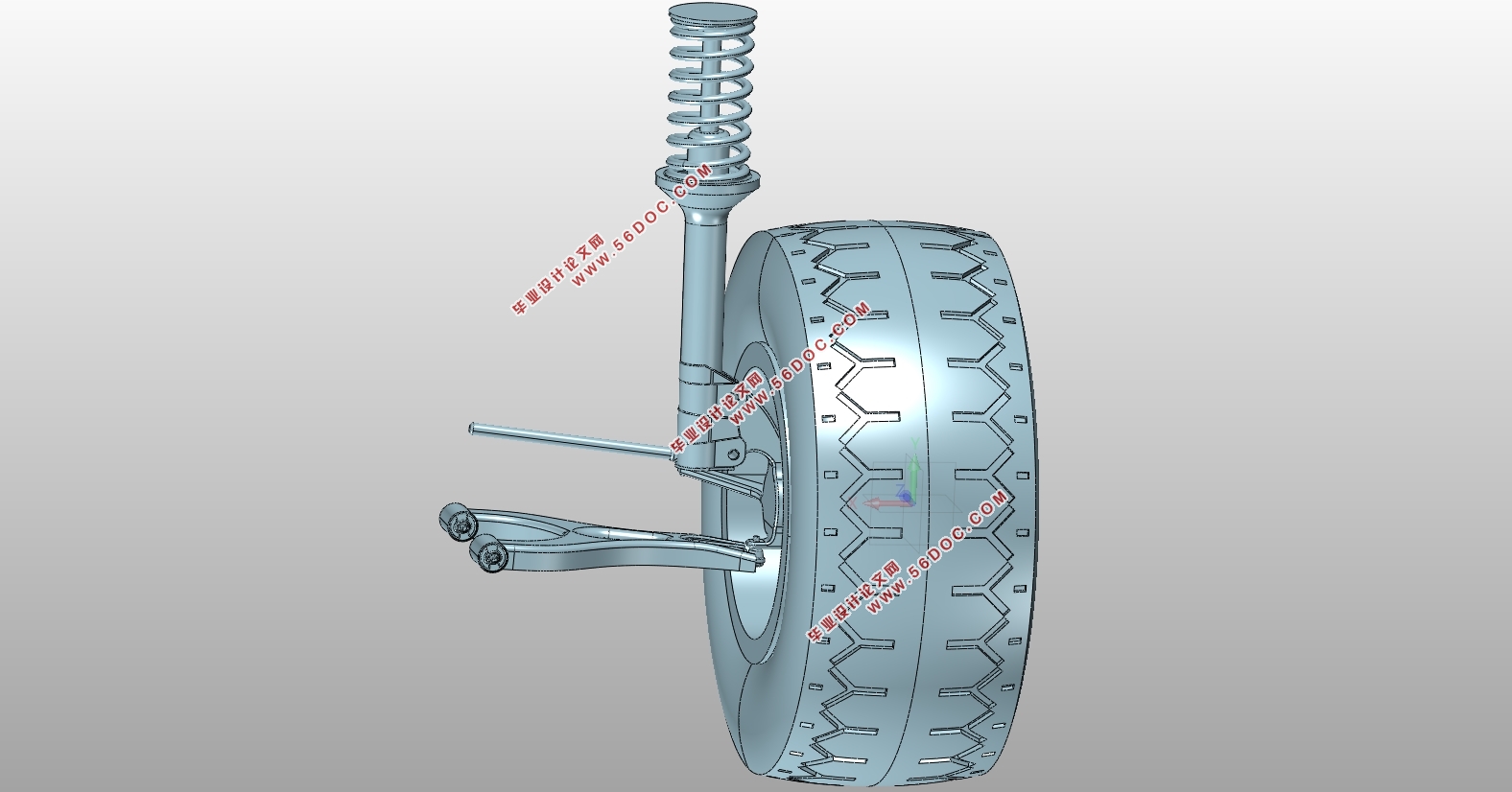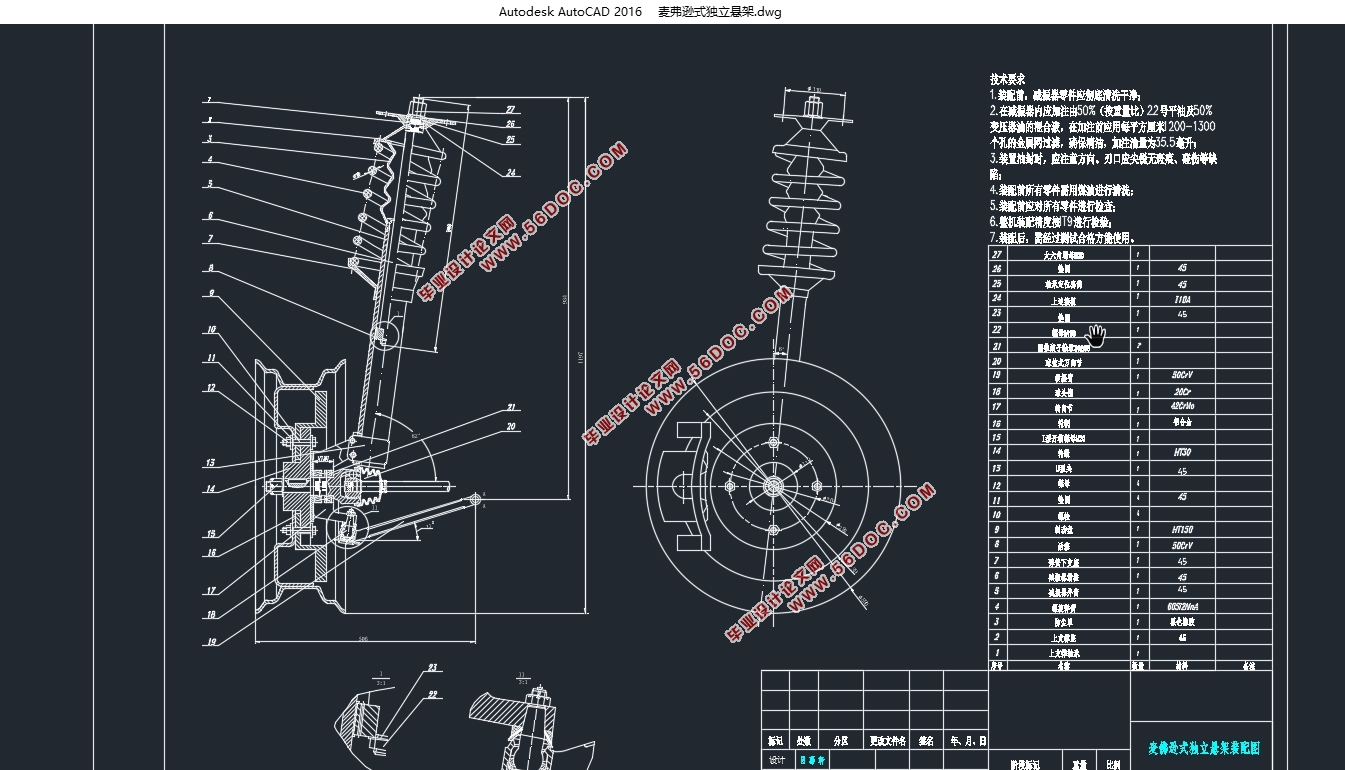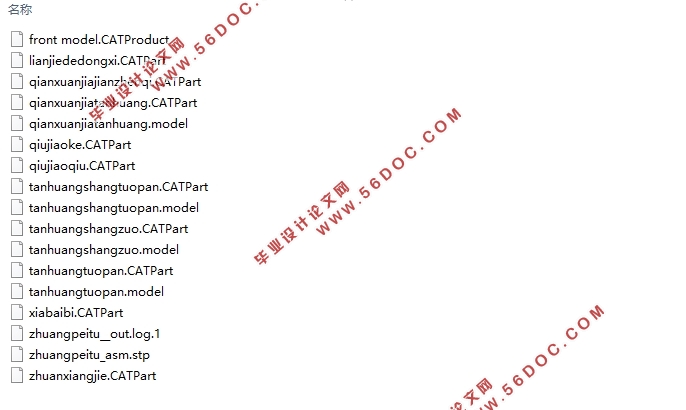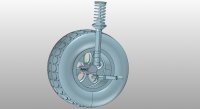传祺GS8前悬架系统设计(英文版)(含CAD图,CATIA三维图)(开题报告,外文翻译,文献摘要,论文说明书英文版9000字,CAD图4张,CATIA三维图)
Trumpchi GS8 Front Suspension System Design
Abstract
This article is for the design of the front independent suspension of the Trumpchi GS8 SUV. Firstly, by comparing and analyzing the structures of different independent suspensions, it is determined that the front suspension structure is a MacPherson independent suspension. Then, the overall design calculation of the main parts of the suspension is carried out, focusing on the design process of the design verification of the elastic components, the selection calculation of the damper, the calculation of the guiding mechanism and the lateral stabilizer bar. According to the design results, the 2D drawings of the parts and assembly drawings of the MacPherson independent suspension were drawn. At the same time, the dynamic three-dimensional modeling and jitter analysis of the suspension system were carried out. Finally, the front wheel positioning parameters are analyzed and tested.
Keywords:McPherson Suspension; Design; Finite Element Analysis; Dynamics Simulation
GS8 Performance Parameters
Performance Parameters GS8 SUV
Wheelbase (mm) 2800
Front track (mm) 1630
Rear track (mm) 1638
Curing quality (kg) 1840
No-load front axle axle load mass (kg) 1104
Shaft axle load mass after empty load (kg) 736
Full load mass (kg) 2365
Axle axle load mass at full load (kg) 1022
Shaft axle load mass after full load (kg) 850
Maximum speed 180km/h
Maximum grade 35%
Braking distance (initial speed 30km/h) 5.6m
Minimum steering diameter 11m
Maximum power / speed 74/5800kW/rpm
Maximum torque / speed 150/4000N•m/rpm
Tire model 235/60 R18
Transmission AMT






CONTENTS
Abstract 5
Chapter 1 Introduction 6
1.1 Purpose and Significance 6
1.1.1 Function of Suspensions 6
1.1.2 Research status at home and abroad 6
1.2 Suspension composition 8
1.2.1 Elastic Components 8
1.2.2 Damper 9
1.2.3 Guide mechanism 9
1.2.4 Lateral stabilizer 9
1.3 Suspension design requirements 9
Chapter 2 Suspension Structure Selection 11
2.1 Suspension Assembly Analysis 11
2.2 Advantages and Disadvantages of Independent Suspension 11
2.3 Characteristics and Classification of Independent Suspension 11
2.3.1 Structure and Characteristics of Double Wishbone Suspension 12
2.3.2 Structure and Characteristics of Single Wishbone Suspension 12
2.3.3 Structure and Characteristics of Single Oblique Arm Suspension 13
2.3.4 Structure and Characteristics of MacPherson Suspension 13
2.3 Basic content and Objective, Technical Solution and Measure 14
2.3.1 Basic content and Objective 14
2.3.2 Technical Solution and Measure 14
Chapter 3 Main Parameters of Suspension 16
3.1 Suspension Static Deflection 16
3.2 Suspension Dynamic Deflection 17
3.3 Working Stroke of The Suspension 17
3.4 Suspension Elastic Properties 17
Figure 3.1 Suspension Elastic Characteristic 18
Chapter 4 Design of the Main Parts of the Suspension 19
4.1 Design Calculation of Coil Spring 19
4.1.1 Selection of Spring Material 19
4.1.2 Calculation of Spring Parameters 19
4.1.3 Determining the Spring Parameters 21
4.2 Design calculation of damping device 22
4.2.1 Classification of shock absorbers 22
4.2.2 Calculation of damper parameters 23
4.3 Design calculation of guiding mechanism 26
4.3.1 Design requirements for guiding mechanisms 26
4.3.2 Parameter Arrangement of Suspension Guide Mechanism 27
4.4 Design calculation of the stabilizer bar 29
4.4.1 Working principle of the stabilizer bar 29
4.4.2 Application of the Stabilizer Bar 30
4.4.2 Parameter selection of the stabilizer bar 31
Chapter 5 Dynamics Simulation of McPherson Front Suspension 32
5.1 Multi-body Dynamics Modeling of Suspension 32
5.2 Analysis of Suspension Positioning Parameters 33
5.2.1 Wheel camber 35
5.2.2 Front wheel toe 36
5.2.3 Caster angle 37
5.2.4 Kingpin internal inclination 38
5.3 Analysis results 39
Chapter 6 Conclusion 40
References 41
Acknowledgement 42
|













